WORLD EXCLUSIVE: First play of Rosapenna St Patrick’s Links
Last updated:
Why Rosapenna’s St Patrick’s Links is the best new golf course in the world.
Ireland’s newest course opens this weekend and we got a world-exclusive sneak preview of Ireland’s new World Top 100 golf courses entry-in waiting. One word… wow.
RELATED: Golf World Top 100 Links Courses in Britain and Ireland
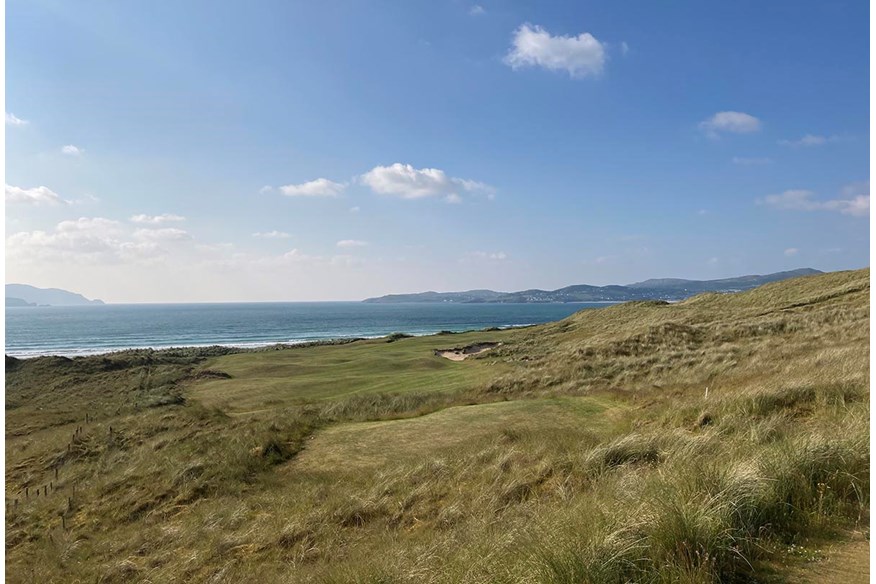
Golf World Top 100 Courses and Resorts editor Chris Bertram was one of the first golfers in the world to play Rosapenna’s new Tom Doak-designed links and, in his review, explains why it is Europe’s most exciting course opening since Kingsbarns in 2000.
RELATED: Kingsbarns course review
Plus, Doak gives the exclusive view of his latest work.
The land on which Rosapenna’s new course, St Patrick’s Links, sits has an intriguing and eventful history – and it is going to have a storied future.
That’s our verdict after we were given a pre-opening preview of this Tom Doak design on the edge of Sheephaven Bay in Donegal.
This is a World Top 100 course in waiting, and an absolute certainty to come into our 2022 ranking of the finest courses you can play on this planet. It’s that good.
RELATED: Golf World’s Top 100 Resorts in Continental Europe
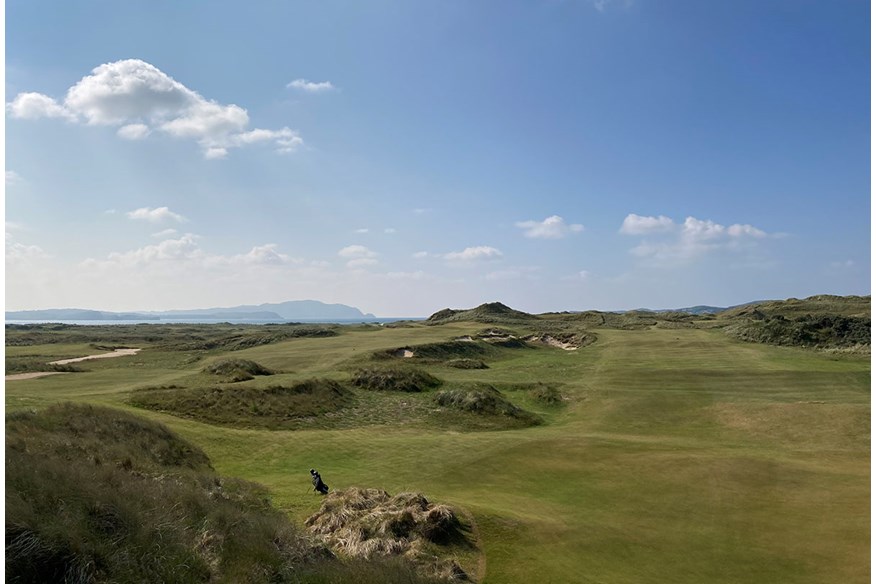
By then it will have had two years to settle in to its environment and will sit even more seamlessly in the epic linksland that is its home.
That home is a magnificent tract of linksland to the south of Rosapenna’s existing courses, which was acquired by the Casey family in late 2012. It had been developed as two 18-hole courses by the Walsh family of nearby Carrigart in the mid-90s, the Maheramagorgan by Eddie Hackett and the Trá Mór by Royal County Down professional Joanne O’Haire.
RELATED: Golf World Top 100 Resorts in Britain and Ireland
Nicklaus Design made an aborted attempt to redevelop the dormant courses in 2006 and when Doak saw the site, he was convinced one stellar 18-holer was preferable to two lesser courses.
As a result, we had pretty high expectations when we travelled here for a preview given Doak is arguably the world’s top architect alongside the Coore-Crenshaw firm and we knew the site was magnificent.
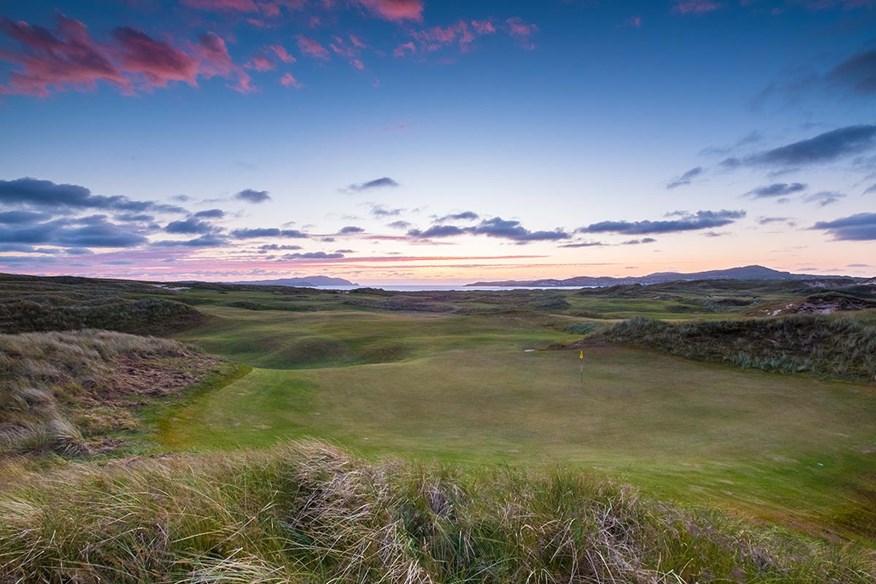
Expectations can often lead to disappointment, but not this time. If anything, they were exceeded. St Patrick’s is absolutely sensational.
It is like nothing we have experienced in Britain and Ireland and more akin to the minimalist courses at US super-resort Bandon Dunes or New Zealand superstar Tara Iti. The link, of course, is that Doak is the man behind two of the courses at Bandon s well as the other two.
RELATED: Is this Europe’s answer to Augusta?
St Patrick’s Links is generally wide off the tee but always indicates there is a better side of the fairway from which to approach greens which are out of this world.
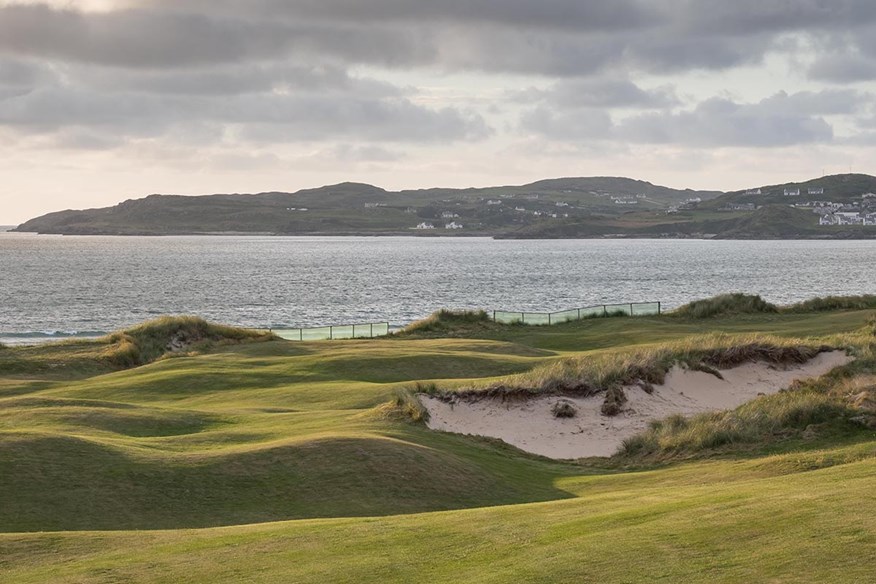
Much of the course is closely mown, with fairways seamlessly leading into greens and greens flowing uninterrupted into the next tee. Lush rough does provide definition but the playing corridors are notably wide, so shots needs to be significantly offline to come into play.
This creates a gorgeous aesthetic of fescue, marram grass, sandy waste areas and rustic bunkers. It is food for the eyes and the soul.
RELATED: The best golf courses in Ireland
The green complexes are masterpieces and it is here, as well as the raunchy nature of the fairways, that Doak’s in-house team of shapers really excel. Unlike other architects, these are his people, with his philosophy. They know what he wants almost as much as he does. There is no outside firm trying to interpret the charismatic American’s ideas and thoughts.
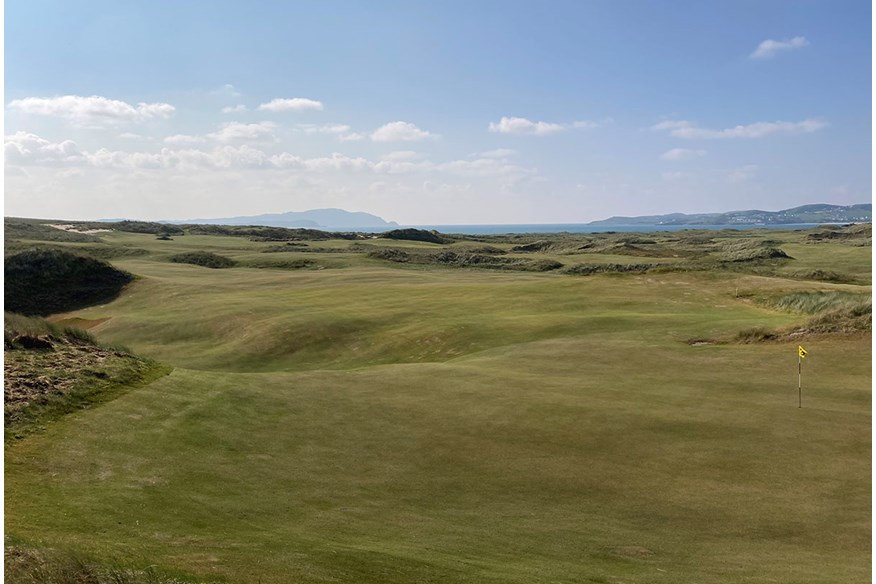
There is a pleasing consistency to the look of St Patrick’s – it all ‘looks’ part of the same course – yet there is exceptional variety to the holes. This appearance will only improve as everything blends and knits together, because even though no material was brought into the site, naturally sand was moved around to create the holes and the new turf is in varying degrees of maturity.
RELATED: The epic new links that should be on your bucket list
Helping it achieve a natural appearance already is one of the legacies of the history of St Patrick’s. Nicklaus Design’s brief engagement in 2006 saw them strip some of the land on which the new course sits. Since then, sand has blown about those areas for decades, creating a man-can’t-create authentic look.
St Patrick’s is great fun. Chipping and putting around the greens alone is thoroughly entertaining, such are the cute borrows, mounds, humps and slopes.
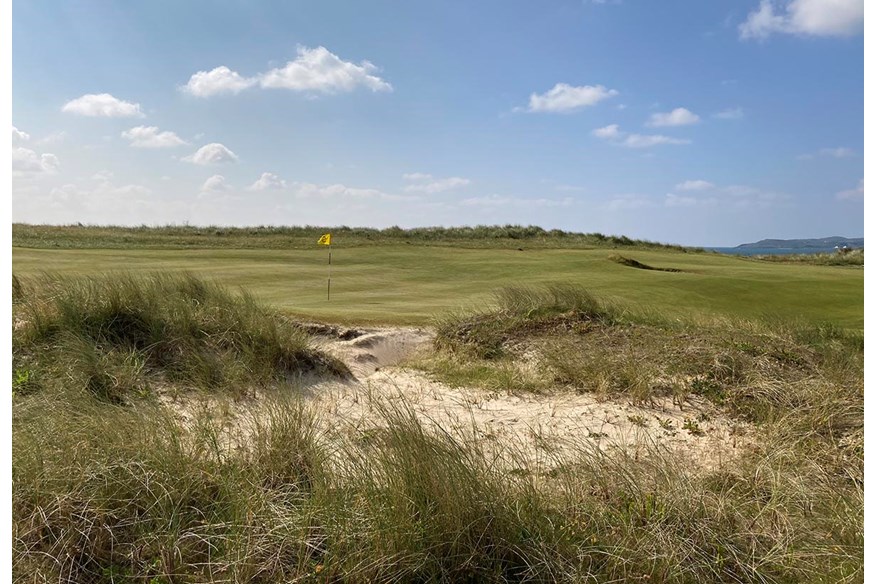
Perhaps more than anything else, it has the X Factor in spades. It feels special in any measure you’d care to apply.
The conditioning is already good and give it a couple of years to bed in and grass coverage to improve and it will be terrific. Its sisters Sandy Hills and Old Tom are in their best-ever shape. Rosapenna truly is like a different resort than it was five years ago.
COURSE REVIEWS: Rosapenna Sandy Hills | Rosapenna Old Tom
The setting flits between breathtaking and just delightful and Doak has made the most of it with a routing that gives you little hints of the water’s edge as it teases you on the first few holes and then is revealed in spectacular style when you stroll onto the tee of 4th.
There, Sheephaven Bay appears from this elevated tee, a view that is enhanced by the fact an expanse of gorgeous sandy linksland sits in the foreground.
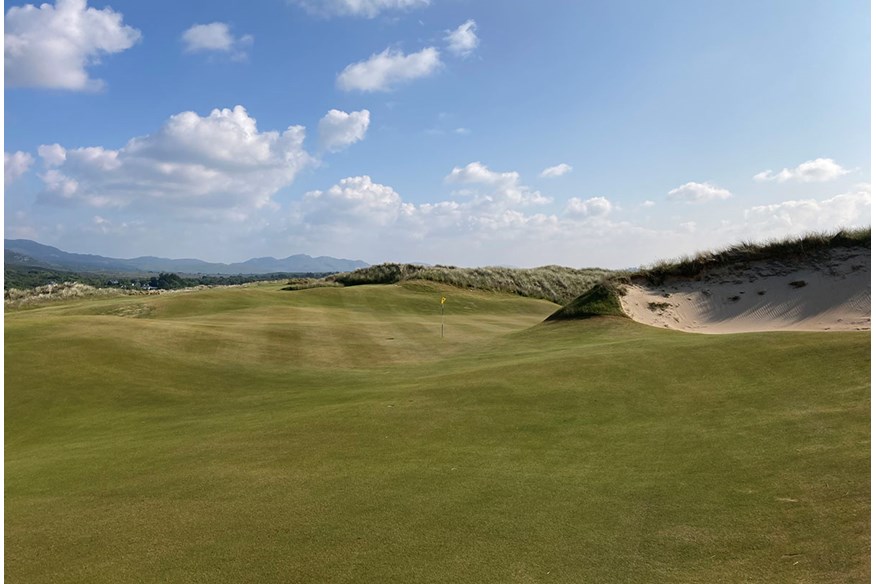
This epic two-shotter, whose rippling fairway snakes between sandy waste areas, begins one of the strongest stretches on St Patrick’s.
Next comes a cool short hole that visually looks mouthwatering, and this is the only time consecutive holes play in the same direction here.
RELATED: Golf World Top 100 Courses for £60 and Under
You then turn round and play the brilliant par-5 6th, completing an all-world par 3, 4, 5 sequence. This three-shotter has a cross bunker that ensures everyone has either a long shot to reach in two or, more likely, a strategic lay-up down the right to leave the best angle to a green surrounded by Himalayas.
The 7th lets you rip off the elevated tee and then get creative with a short-iron approach to a dell green that is blind unless you lay back and to the right. The 8th plays back over the 7th green to an angled fairway and then up to a cunning green.
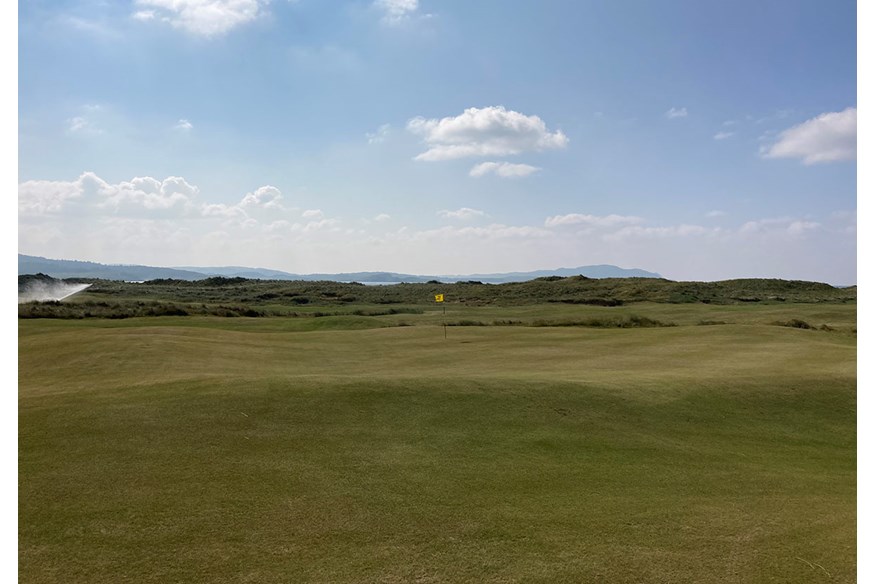
An exhilarating front half ends with a magnificent green protected by a huge bowl cut front right, a vastly more sensible hazard for the strong player and high-handicapper than a bunker.
The 9th has taken us inland and the four holes that follow occupy the least dramatic land aesthetically. But don’t think for a minute that means modest holes.
The 10th is one of my favourite holes on the course in fact, a mid-length par 4 where a good drive will leave a delicious approach to a beautifully contoured green which seems to melt into the Himalaya-esque bunker on its right side. A piece of golf art.
The long par-4 next has possibly most undulating fairway on the course and a green with extravagant movement in it and there are two further holes that will be regarded as less spectacular in the straight-away par-5 12th and uphill 13th, which has another fabulous green complex with the sea audible beyond.
RELATED: Chris Bertram asks why some green fees are so expensive
That gives you a clue that, as at the 4th, there is another ‘big reveal imminent. The tee offers a panoramic view of Tramore beach lapped by the striking turquoise waves and will in time be considered one of Ireland’s outstanding holes.
Its conditioning is a little behind most of the others as it was hammered by a storm after it was grassed, but you get the idea already. The drive must be bold, long and straight, because anything short and especially right will have an impossibly exacting approach. Instead you must drive over the bunker on the corner of the dog-leg and hug the edge of the fairway next to the beach. That gives you a huge advantage in finding a wonderful, slender green hard to the beach.
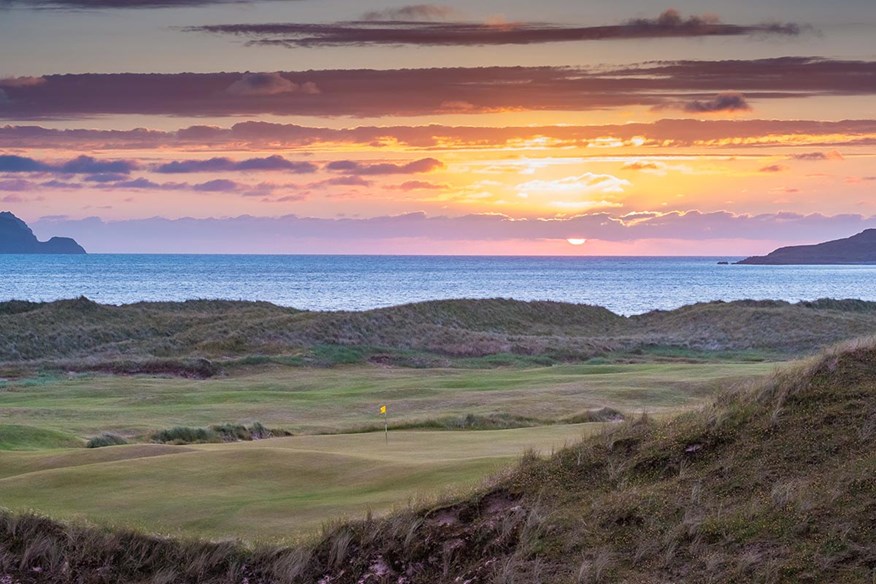
Doak’s genius is in making climbing the interior dune to the right of the green seem like a pleasure not a chore. It starts with the approach to 14 actually and continues with an uphill short hole with epic views over the previous green and out to sea.
That takes you to the 16th, which plays downhill and usually downwind… but it needs to. This par 4 is SI 2 and 471 yards off the white tees. But it is wide and you can swing freely; it will require two solid blows to get home though.
The penultimate hole is arguably this links’ best par 3, and is brilliant in its simplicity. A green 42 yards in length and shaped with elan sits serenely between two low dune slacks. A class act.
To finish, one of the shorter par 4s and if you move onto the white tees you can have some fun and try to drive the green and finish with a three.
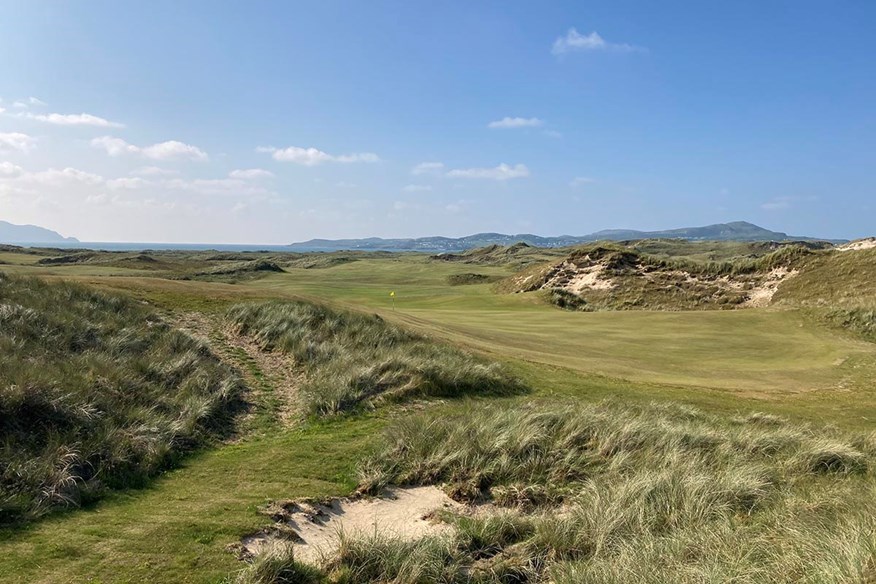
Designer Tom Doak’s exclusive assessment on Rosapenna’s St Patrick’s Links
I am very happy with the way St Patrick’s has turned out, even though I had not been back between shaping the last green in October 2019 and just now; my associates Eric Iverson, Clyde Johnson and Angela Moser finished the bunkering and fairway shaping last year.
RELATED: Doak puts Woodhall Spa’s Hotchkin back among the elite
It’s a beautiful site and combining the two original courses into one gave us the freedom to explore the best of 300+ acres. The front nine starts through big dunes and works it’s way up to the dramatic tee at the 4th; it’s funny how many of my best courses (Pacific Dunes, Ballyneal, Tara Iti, and Barnbougle) hit the coast right around that same mark.
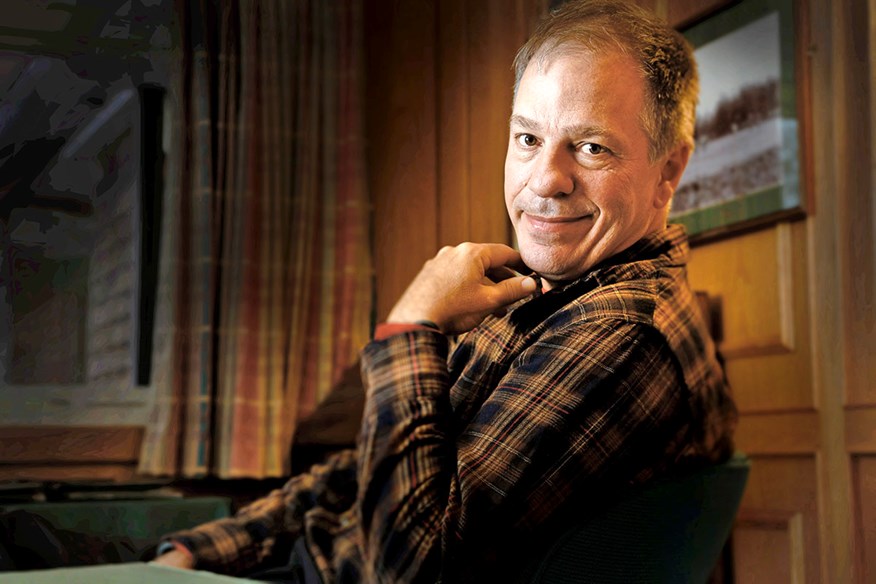
The loop from the 3rd to 6th holes was the last piece of the routing I solved; we had tried to go clockwise there and it was much less dramatic. The 8th has always been a favorite hole with the view out the mouth of the bay from the tee.
The back nine starts off with three tough holes away from the sea, but the undulations of those fairways are superb. Then we go around the back of the big hill for the 13th and 14th, and use the par-3 15th to sneak up on the great view from the 16th tee, which has always been the climax of the routing for me. The long par-3 17th with a deep bowl in front of it, and the short par-4 18th make a rousing finish.
READ NEXT: Golf World Top 100 Courses in England
-
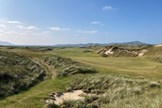 Rosapenna St Patrick's Links is Ireland's newest golf course and will be one of the best in the world.
Rosapenna St Patrick's Links is Ireland's newest golf course and will be one of the best in the world.
-
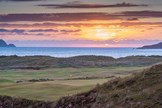 Chris Bertram was among the first golfers in the world to play Rosapenna's St Patrick's Links.
Chris Bertram was among the first golfers in the world to play Rosapenna's St Patrick's Links.
-
 Rosapenna's St Patrick's Links looks set to be Europe's best new golf course since Kingsbarns.
Rosapenna's St Patrick's Links looks set to be Europe's best new golf course since Kingsbarns.
-
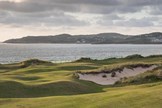 Rosapenna's St Patrick's Links looks set to be Europe's best new golf course since Kingsbarns.
Rosapenna's St Patrick's Links looks set to be Europe's best new golf course since Kingsbarns.
-
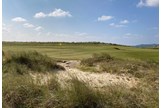 Chris Bertram was among the first golfers in the world to play Rosapenna's St Patrick's Links.
Chris Bertram was among the first golfers in the world to play Rosapenna's St Patrick's Links.
-
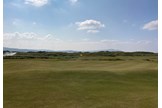 Chris Bertram was among the first golfers in the world to play Rosapenna's St Patrick's Links.
Chris Bertram was among the first golfers in the world to play Rosapenna's St Patrick's Links.
-
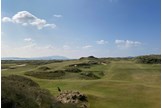 Rosapenna's St Patrick's Links looks set to be Europe's best new golf course since Kingsbarns.
Rosapenna's St Patrick's Links looks set to be Europe's best new golf course since Kingsbarns.
-
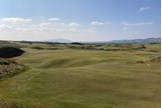 Chris Bertram was among the first golfers in the world to play Rosapenna's St Patrick's Links.
Chris Bertram was among the first golfers in the world to play Rosapenna's St Patrick's Links.
-
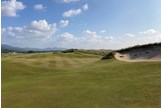 Chris Bertram was among the first golfers in the world to play Rosapenna's St Patrick's Links.
Chris Bertram was among the first golfers in the world to play Rosapenna's St Patrick's Links.
-
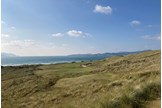 Rosapenna's St Patrick's Links looks set to be Europe's best new golf course since Kingsbarns.
Rosapenna's St Patrick's Links looks set to be Europe's best new golf course since Kingsbarns.
-
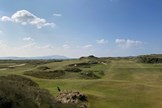 Chris Bertram was among the first golfers in the world to play Rosapenna's St Patrick's Links.
Chris Bertram was among the first golfers in the world to play Rosapenna's St Patrick's Links.
-
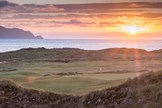 Chris Bertram was among the first golfers in the world to play Rosapenna's St Patrick's Links.
Chris Bertram was among the first golfers in the world to play Rosapenna's St Patrick's Links.
-
 Tom Doak designed Rosapenna's new St Patrick Links.
Tom Doak designed Rosapenna's new St Patrick Links.